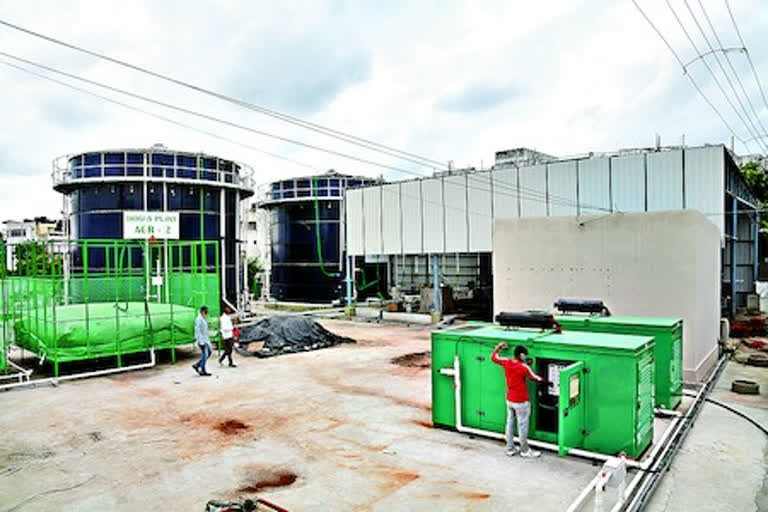Hyderabad: After the successful development of Anaerobic Gas Lift Reactor (AGR) technology, the Indian Institute of Chemical Technology (IICT) is all set to establish biogas generation plants in various parts of the Telangana's Hyderabad city.
At present, the 10-ton capacity biogas plant at Bowenpally Agricultural Market is generating 150 units of power daily.
Once fully operational, it can generate 600 units a day. Similar 5-ton capacity plants are being set up in Gudimalkapur and Gaddiannaram markets.
The solid waste and biomass from these markets will be used to produce biogas. Plans are underway to arrange 0.5-ton capacity plants in Erragadda, Alwal and NTR Nagar markets.
Hyderabad is facing a major garbage problem. Transport and disposal of solid waste are both meticulous and expensive. Heaps of organic waste is getting amassed in vegetable and fruit markets.
If biogas and CNG can be locally generated from solid waste, the government can do away with waste collection and dumping.
The Department of Bioengineering and Environmental Sciences (BEES) at the IICT came up with this technology after 5 years of research and consistent efforts. Scientists at IICT developed the AGR technology, meant to treat and dispose of organic waste such as sewage sludge, poultry litter and municipal solid waste.
The Reactor uses High Rate Bio methanation technology for the generation of biogas and bio manure. Initially, the technology was tested on a 250 kg capacity prototype at IICT. A 5-ton wet-waste treatment was set up in Jawaharnagar dumping yard. It can generate 300 units of power daily. AGR technology has many unique features to its credit. For a quantity of 1-ton food waste a day, the Reactor can generate 150 m3 biogas/day, equivalent to 55-60 kg of LPG. Generated biogas is then filled into large balloons.
There are two diesel-run 62.5 kW-capacity generators in Bowenpally. Currently, biogas is being used to run these generators besides meeting the power requirements of the market. Dr AG Rao, Chief Scientist at IICT, said that they would be setting up five more full-scale plants in the city.
ALSO READ: Green India Challenge: Sonu Sood plants sapling in Ramoji Film City




